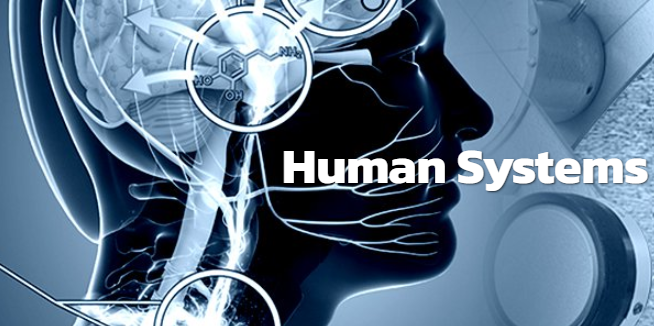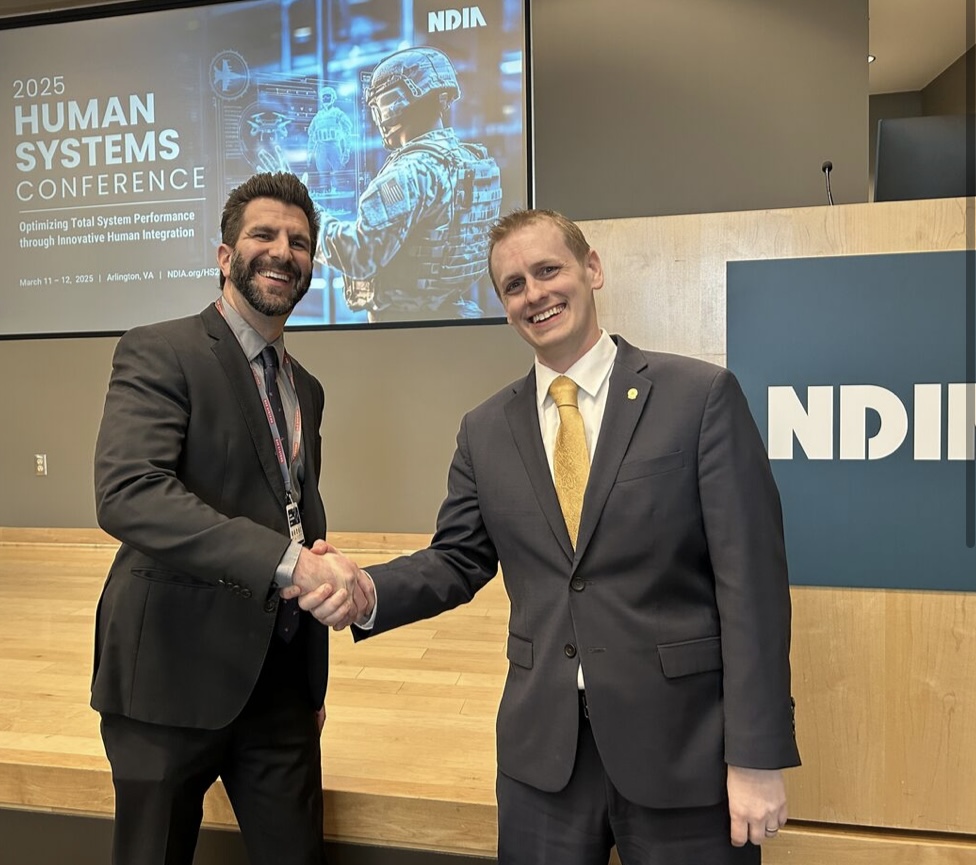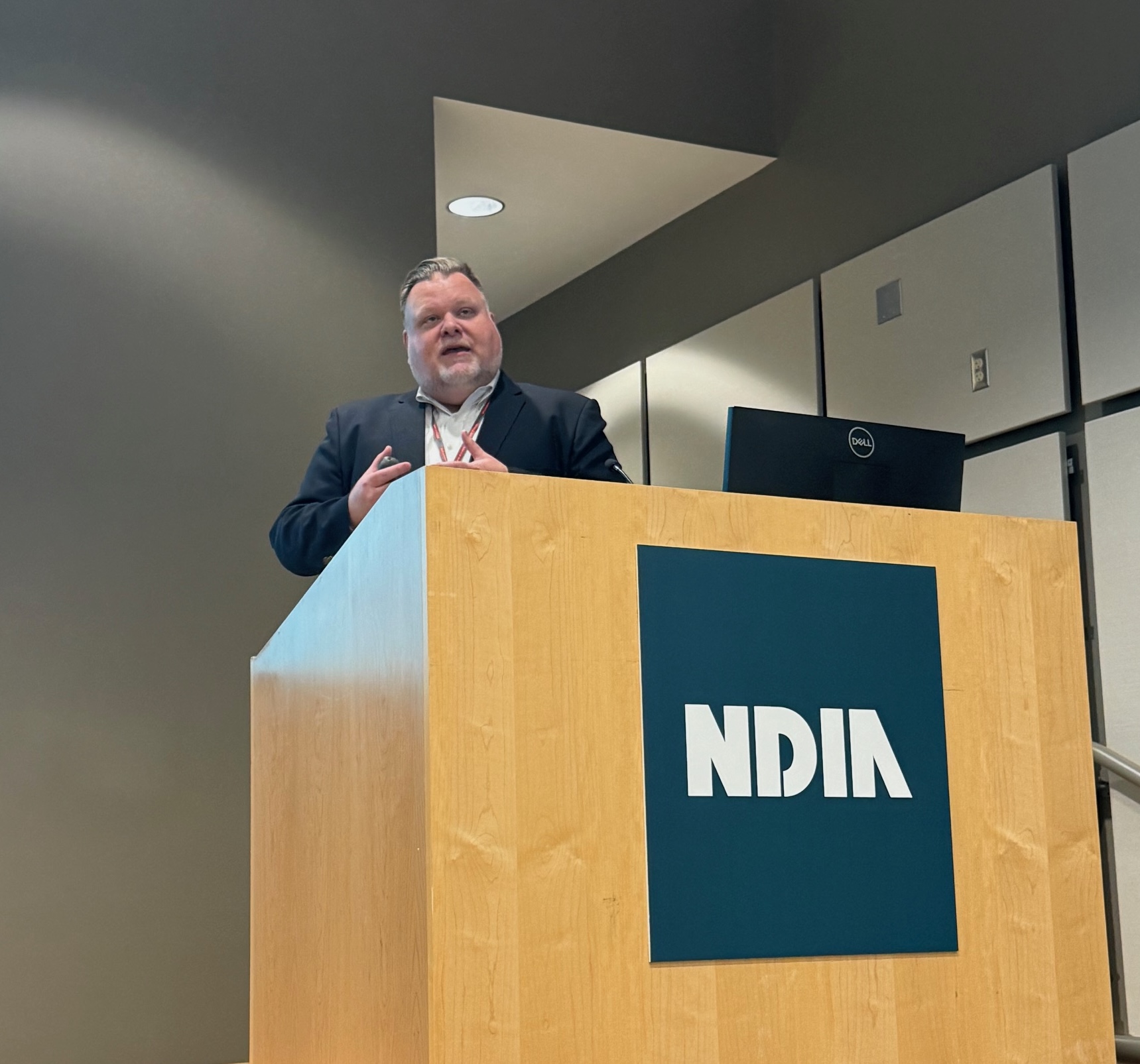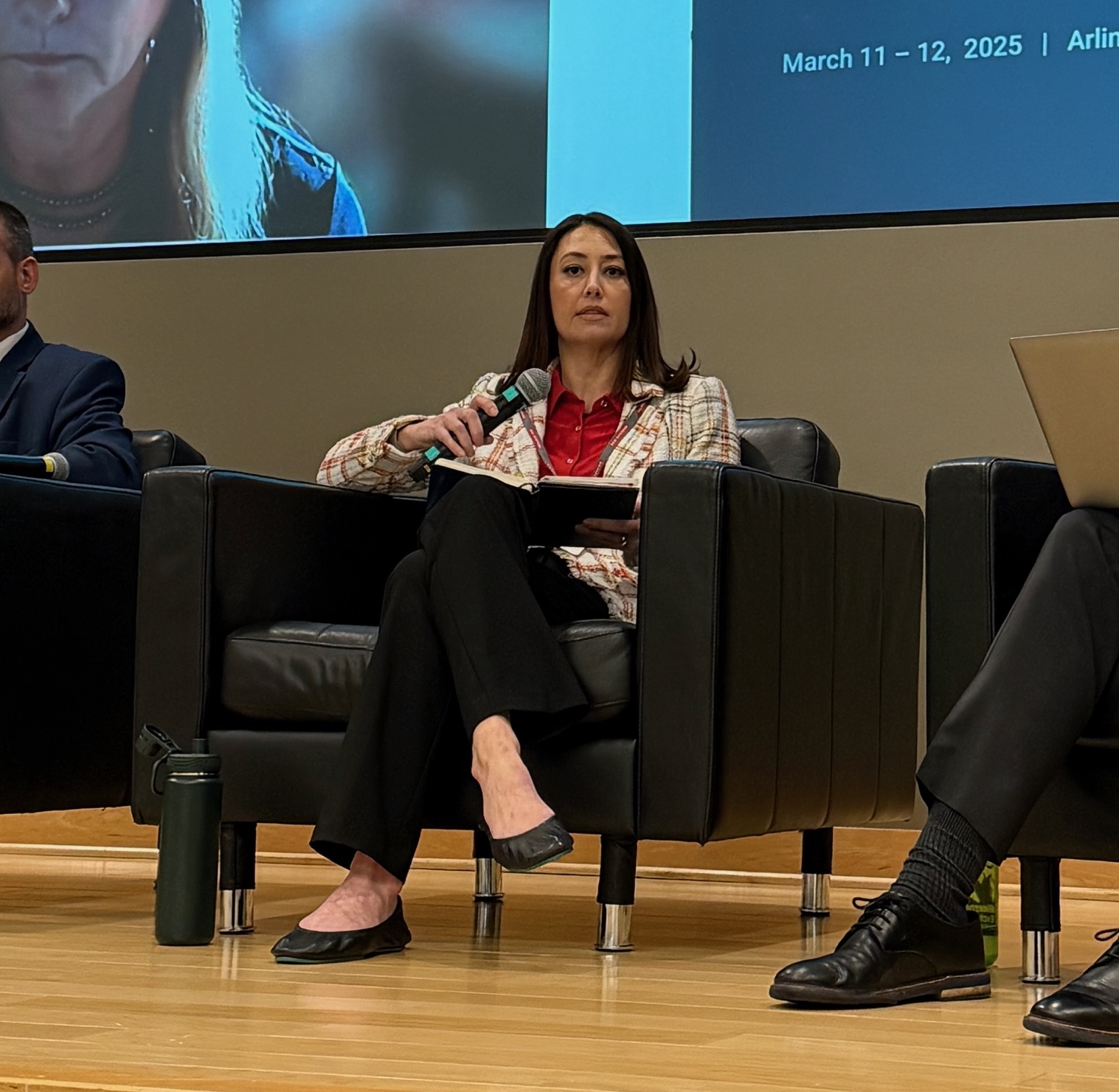
Within DoD system life cycles, Human Systems Integration (HSI) is understood to be implicit to good Systems Engineering. Acknowledging this, the 2025 National Defense Authorization Act (NDAA) specifically mandates HSI Planning via “Human Systems Integration for Defense Acquisition” as defined in DoDI 5000.95 as well as incorporation of Human Readiness Levels (HRLs per ANSI/HFES 400-2021) into all programs of record. The Human Systems experts in the Applied Systems Laboratory (ASL)’s Human Centered Engineering Division (HCED) are positioning GTRI to assist DoD program managers to comply with these expectations.
On March 11 - 12, 2025, GTRI researchers from HCED gathered in Arlington, Virginia, for the National Defense Industrial Association (NDIA) Human Systems Conference. Their prominent participation at this year’s event is indicative of the increasingly high-profile role GTRI is playing as a Human Systems white hat for the government.

HCED Associate Division Chief Stuart Michelson, the NDIA Human Systems Division Chair, was the organizer of the event and set the emphasis as “Optimizing Total System Performance through Innovative Human Integration." The NDIA Human Systems Division exists to promote meaningful technical exchange between government, industry, and academia related Human Systems Integration (HSI) for complex DoD systems. GTRI’s growing presence as leaders in this forum is characteristic of its perception as a key innovator and trusted agent for Human Systems across the DoD that can enable programs to react to the NDAA.

HCED Chief Engineer Jeff O’Hara presented a joint message from GTRI and DOT&E on moving HSI further to the left in DoD Test and Evaluation activities. This presentation emphasized the benefits of incorporating Human Systems into DoD system development earlier and included examples of reduced program costs, prevention of costly repairs, improved systems performance, and faster development cycles. This approach to effective Systems Engineering through HSI Planning is one of the ways GTRI delivers value to its customers throughout the acquisition process. Uniting with government partners to advocate for this timely messaging at this NDIA forum is a testament to the continued impact that GTRI researchers are having in the field of Human Systems.

HCED Human Performance Branch Head Dr. Theresa Kessler was a participant on a Human and AI Hybrid Teaming panel as an acknowledged and widely published expert on trust. As the DoD continues to rely on GTRI to provide solutions to the challenge of human-machine teaming, cross-domain C2, and collaborative autonomy, a continued emphasis on a proper understanding of trust remains essential to the design of future DoD systems. Advocating for a proper understanding of the dynamics of trust is one way that GTRI researchers in HCED are helping the DoD craft requirements and sustain systems that exhibit high relevance and mission effectiveness.
According to Michelson, “DoDI 5000.95 specifies that program managers are to optimize total system performance and minimize ownership costs through an HSI strategy. Despite this, too often considering Human Systems is dismissed as an up-front cost or something to be addressed ‘later’. In my experience, ‘later’ rarely comes - and the warfighter is the one that loses when this happens.” He concluded “As GTRI’s clearinghouse for all things Human Systems, the Human Centered Engineering Division in ASL doesn’t just assist external customers, but is also uniquely qualified to assist existing GTRI programs with cutting cost and maximizing system effectiveness.”
The theme of the 2025 NDIA Human Systems Division conference was “Optimizing Total System Performance through Innovative Human Integration”, and will contain presentations that emphasize the value of Human Systems Integration in the DoD by highlighting thoughtful integration techniques.
Editor: Christopher Weems
GTRI Communications
Georgia Tech Research Institute
Atlanta, Georgia
The Georgia Tech Research Institute (GTRI) is the nonprofit, applied research division of the Georgia Institute of Technology (Georgia Tech). Founded in 1934 as the Engineering Experiment Station, GTRI has grown to more than 2,900 employees, supporting eight laboratories in over 20 locations around the country and performing more than $940 million of problem-solving research annually for government and industry. GTRI's renowned researchers combine science, engineering, economics, policy, and technical expertise to solve complex problems for the U.S. federal government, state, and industry.



